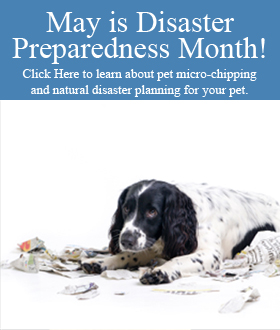It has come to our attention that a case of Leptospirosis may have claimed the life of a pet in the Fishhawk Ranch area. In an effort to save another pet’s life, we are posting this blog for educational and precautionary measures.
Leptospirosis or Lepto is a disease that affects many kinds of animals. It occurs throughout the world. The organism that causes Lepto belongs in a group of spiral organisms called spirochetes. They are similar to ordinary bacteria in many ways and many spirochetes live free in nature and do no harm but two have adapted to cause disease in your pet. These are the ones responsible for Lepto and the Borreia that cause Lyme disease.
The disease is always present in the environment for your dog to pick up. It is perpetuated in rats and wildlife such as raccoons, skunks, fox, opossum. When infected animals urinated, they contaminate their environment with living leptospira. These carrier wildlife shed leptospira intermittently. Pets can become infected by sniffing this urine. More often, the leptospira are washed by rains into standing water (ponds). Then pets wading, swimming or drinking the contaminated water develop the disease.
Lepto causes sudden disease in dogs to be most severe in unvaccinated pets under 6 months of age. They are likely to suffer life-threatening liver and kidney damage. It takes about 4-12 days AFTER exposure for the pet to feel ill.
Not only is Lepto dangerous to your pets, but is it equally dangerous to humans. Moisture is an important factor and other modes of transmission are ingestion of contaminated food and water are also possible. Lepto can gain entry into humans through cuts and abrasions in the skin, through intact mucous membranes (nose, mouth, eyes) and perhaps through waterlogged kin.
As a preventative measure for your dog, please have them vaccinated yearly and as far as humans go, it is important to be aware of the risk factors for human infection and, if possible, the infection source. Avoid contact with animal urine, infected animals or an infected environment. Do not wade in ponds or walk in grassy areas surrounding the ponds barefoot. Where appropriate, protective clothing should be worn and wounds covered with waterproof dressings to reduce the chance of infection if exposure is likely.
If you suspect anything or have any questions, contact your veterinarian immediately.





































